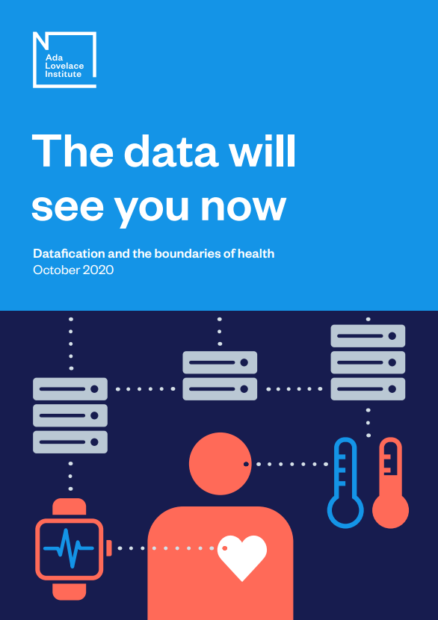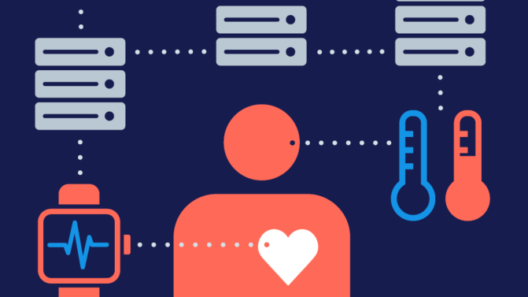The data will see you now
Datafication and the boundaries of health
Exploring the datafication of health: what it is, how it occurs, and its impacts on individual and social wellbeing
29 October 2020

Data about people’s health is no longer confined to medical records and clinical trials. It is gathered by wearable technologies and smartphone apps; it is inferred from shopping habits and online behaviour; it is used by insurers and advertisers for purposes besides healthcare or medical research. This is the datafication of health, and it has significant consequences for people and society.
In this report, the Ada Lovelace Institute explores the datafication of health: what it is, how it occurs, and its impacts on individual and social wellbeing. We draw on examples to synthesise existing research, analyse concepts and surface the societal and ethical challenges arising from the blurring of the boundaries of health data. We chart the mechanisms through which datafication occurs and how people’s health becomes ‘legible’ to an array of actors, before exploring how datafication challenges existing practical, legal and conceptual definitions of what counts as ‘health data’.
We put forward evidence that the datafication of health has created an ‘Internet of Health’, in which everyone is made to perform as a patient, subject to continuous monitoring, diagnosis and prediction. We ask what it means to be a patient in this Internet of Health and pose twelve questions that arise from the consequences of datafication.
While we cannot address all the consequences of the datafication of health in full here, we hope that the questions we identify, alongside the concepts explored throughout, act as a foundation for future work by researchers, policymakers, technology developers and health professionals who want to ensure that health data works for people and society.
Related content

Health datafication, digital phenotyping and the ‘Internet of Health’
A new report from the Ada Lovelace Institute explores the datafication of health, how it manifests and the consequences for people and society.